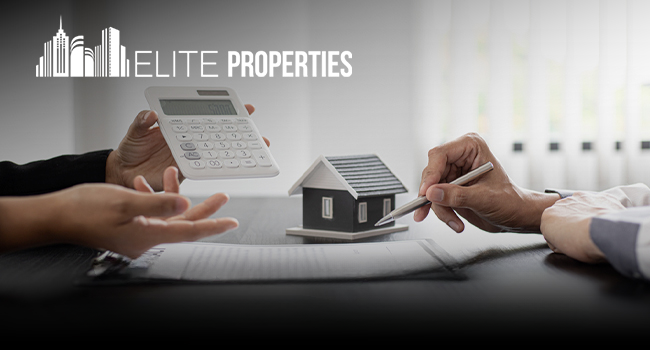Cash Home Buyer Is the Right Choice
Selling a home in New York City is rarely “simple.” NYC home sales come with a lot of moving pieces, building rules, board requirements, tenant logistics, repair decisions, and financing timelines, so a “normal” sale can easily stretch longer than sellers expect.
That’s why more sellers consider a cash for home buyer, especially when speed, certainty, and convenience matter more than squeezing out every last dollar. So it’s not surprising that many owners look at cash buyers when they want speed and predictability, even if it means trading a bit of upside for a smoother exit. At Elite Properties NY, we buy homes for cash and help NYC owners move forward without the usual friction.
Here are 7 clear signs a cash buyer may be the right fit for your situation.
1) You need to sell fast because of a deadline
If you have a fixed date to work around, like a relocation, a new job start, a lease change, or money you need unlocked, the slow pace of a traditional listing can feel stressful. Cash sales typically remove the biggest delay: buyer financing. That means fewer moving parts and a much faster path to closing.
If your timeline is “weeks, not months,” cash is worth considering.
2) The home needs repairs (and you don’t want to renovate)
In NYC, repairs can be expensive and slow, contractor availability, permits, building rules, elevator reservations, and neighbor complaints can turn “quick updates” into a long project.
If your home needs work (or you just don’t want the stress), selling as-is to a cash buyer can be a relief. No painting for open houses. No “fix this before we proceed” demands. No scrambling to make a 20-year-old kitchen look new.
3) You’ve had a deal fall through before
One of the most frustrating parts of a traditional sale is getting all the way to the finish line… and then watching the buyer’s financing collapse, the appraisal come in low, or the lender ask for last-minute documents that delay everything.
Cash buyers reduce the chance of “surprise reversals,” because the purchase doesn’t depend on a mortgage approval. If you’ve already been through a failed deal, you know how valuable certainty can be.
4) You’re dealing with an inherited property or complicated ownership
An inherited home can bring a lot of “in-between” work before selling is even on the table: clearing personal items, coordinating decisions with family, figuring out whether any repairs are truly necessary, and gathering the documents needed to move forward.
For many families, a cash sale is simply the easier option when the priority is to close the loop without a long listing process.
A cash sale can help simplify the process, especially when the priority is resolving the property efficiently and fairly, rather than managing a long sales cycle.
5) The home is tenant-occupied or you’re tired of being a landlord
When a tenant is still living there, showings can be restricted, schedules can be touchy, and even simple access can take coordination. If you want out, a cash sale can cut down the scheduling headaches and move things along sooner.
And if you’re done dealing with tenants, a cash buyer can be the cleanest way to close that chapter.
Many landlords choose this route when they want fewer surprises and less day-to-day maintenance responsibility.
6) You want privacy and fewer showings
Traditional listings can mean photos, open houses, repeated walk-throughs, and strangers touring your home. For many NYC sellers, especially families, working professionals, or owners in high-traffic buildings, that’s a major downside.
A cash buyer process is usually more discreet: fewer visits, less public exposure, and a simpler schedule.
7) You care more about a smooth process than a “perfect” price
There’s nothing wrong with aiming for top dollar. But not every seller wants a long, demanding sale process to get there.
Which route makes sense comes down to what you value most right now, maximum price, or a faster, simpler sale.
How Elite Properties NY Helps
At Elite Properties NY, we keep the cash-sale process straightforward. Send us the key details (property type, location, condition, and your timeline). We’ll reply with a straightforward offer outline and the next steps, written in plain language.
FAQs
1) Do I need to fix anything or stage the home before a cash sale?
In many cases, no. Sellers often choose cash sales specifically to avoid repairs and heavy prep.
2) How quickly can a cash sale close in NYC?
Every closing is different, but cash can speed things up because there’s no mortgage approval timeline. You’ll still go through normal items like title work and paperwork, and some buildings have their own steps, but the timeline is often simpler without a lender in the middle.
3) Will I still have inspections in a cash sale?
Often there’s a simple walkthrough to confirm the condition. It’s usually quicker than the traditional inspection cycle that can lead to extended renegotiations.
4) Can Elite Properties NY buy a condo, co-op, or multi-family property for cash?
Often, yes. Co-ops and certain buildings may add extra requirements (like board procedures or building rules). Elite Properties NY can review your specifics and explain the likely steps from there.
5) How can I check if a cash buyer is legitimate?
A solid buyer explains the steps in plain language, puts the offer in writing, and can show funds when asked. If details stay vague or the terms keep changing, be cautious.









